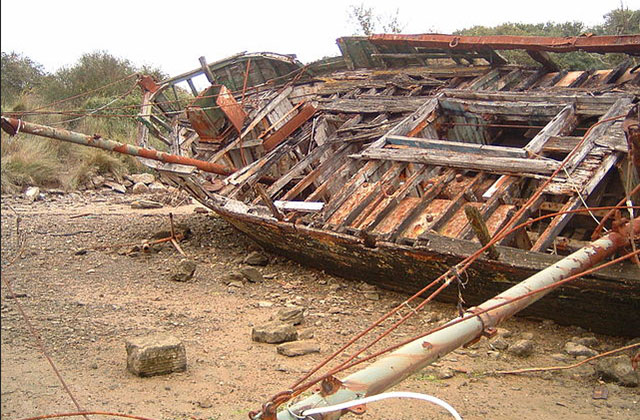In the years since the Clotilda arrived on Alabama’s shores in 1860, with 109 stolen West Africans below deck, researchers have long believed the ship was the last one of its kind to make the voyage. But where was it? Yesterday (May 22), the Smithsonian Magazine reported that the ship has been located along the Mobile River, near Twelvemile Island.
The search for the ship started in 2017, following talks between the descendants of Africatown’s founders and Smithsonian curator and National Museum of African American History and Culture’s Slave Wrecks Project (SWP) co-director Paul Gardullo. Founded in 1860 during Jim Crow and Reconstruction, Africatown was built by a group of West Africans who were brought illegally to Mobile via the Clotilda; the import of people for the purpose of enslavement was outlawed in 1807.
Rumors that the ship was still in Alabama ramped up in 2018, when a reporter with Alabama’s Advance Local thought he’d found the remains; but that wreck was deemed too large. The Alabama Historical Commission (AHC), National Geographic Society and SWP conducted a week-long survey to determine the Clotilda’s whereabouts with little luck. That same year, Gardullo jumped in to include members from Africatown in the process.
“This was a search not only for a ship. This was a search to find our history and this was a search for identity and this was a search for justice,” Gardullo told the Smithsonian. “This is a way of restoring truth to a story that is too often papered over. Africatown is a community that is economically blighted and there are reasons for that. Justice can involve recognition. Justice can involve things like hard, truthful talk about repair and reconciliation.”
And the timing couldn’t be better. This past February 2019, more than 200 descendants of Africatown’s founders gathered in Alabama for the first time, National Geographic reported. Last year, Zora Neale Hurston posthumously published “Barracoon: The Story of the Last ‘Black Cargo’,” which tells the story of Cudjo Lewis, one of the enslaved people on that final voyage.
The Clotilda was authenticated by a group of researchers, led by the AHC and the maritime archeology group SEARCH Inc., which specializes in diving for historic shipwrecks.
For residents of the small Mobile community, this is great news. “So many people along the way didn’t think that happened because we didn’t have proof. By this ship being found we have the proof that we need to say this is the ship that they were on and their spirits are in this ship,” Lorna Gail Woods, the descendant of an Africatown founder told Smithsonian Magazine. “No matter what you take away from us now, this is proof for the people who lived and died and didn’t know it would ever be found.”
